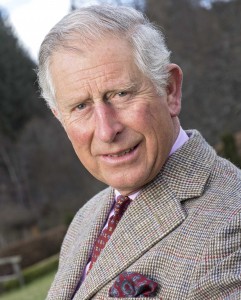Our History
Recognising and celebrating Wales's scholarship and research

Wales has a proud tradition of achievement in all aspects of education, science, engineering, medicine, the arts, humanities and the social sciences.
Many of Wales’s universities boast examples of outstanding research – from Nobel Laureates in the life sciences research at Cardiff University, to the award-winning Institute of Biological, Environmental and Rural Sciences (IBERS) in Aberystwyth, Bangor’s impressive work in the fields of environmental protection, opto-electronics at Glyndŵr and Swansea’s innovative advances in materials research and testing. In 2007, the Nobel Prize was awarded to Professor Sir Martin Evans of Cardiff University and the building of the Large Hadron Collider – the most powerful particle accelerator ever built and based at the European Particle Physics Laboratory CERN, was overseen by Professor Lyn Evans, a physicist who received his research training at Swansea University.
The Learned Society of Wales was set up in 2010 to recognise and represents excellence and promote scholarship and research, wherever it is found in Wales while appreciating the national and global dimension. The Society has a responsibility to help build the capacity of academics, practitioners and policymakers in their disciplines, and to work in collaboration with other professional societies and institutions.
Election to Fellowship is a public recognition of academic excellence. The Society harnesses the expertise of the Fellowship with the explicit purpose of promoting greater awareness of how the sciences and the arts, humanities and social sciences benefit society. Over these initial years, the Society has conducted an effective and stimulating programme of activities that have benefited Welsh scholarship and Welsh life in general.
Unlike other national academies, we represent all disciplines and provide a cross-disciplinary forum for sharing and debating knowledge and making it available to other sectors including schools, the public, and policy-makers.
Enhancing the Society’s footprint and having a presence across Wales was important in order for the Society to claim itself as Wales’s first national academy. Furthermore it was important too, that the Society championed the Welsh studies (the study of Wales) and Welsh language. The aim is that landscape and natural heritage provide an important part of developing a ‘sense of identity, confidence and wellbeing which will help enable young people to flourish in learning, life and work’.
Achievements since 2010
Although relatively new , the Society has already enjoyed considerable success.
In a relatively short period of time, the Society has emerged as a significant and respected institution that plays a leading role in the intellectual and public life of the country. It has secured recognition within the higher education and government sectors in Wales. It secured the agreement of His Royal Highness, The Prince of Wales, to serve as the Society’s Royal Patron, and in 2015 was awarded its own Royal Charter.
Women comprise 13% of the Fellowship. The Society harnesses the expertise of the Fellowship with the explicit purpose of promoting greater awareness of how the sciences and the arts, humanities and social sciences benefit society. Over these initial years, the Society has conducted an effective and stimulating programme of activities that have benefited Welsh scholarship and Welsh life in general.
Increasingly, the Society has become a source of expert comment on major issues relevant to Welsh public life. In recognition of this value, the Society has now secured support from most Welsh Universities and has begun productive engagement with the Welsh Government and with other UK and European national academies.
The early history of the Society is described in detail in the following e-book:
Details of our mission and current strategy can be found here.
Royal Patron
His Royal Highness The Prince of Wales became Royal Patron of the Learned Society of Wales in April 2014.
